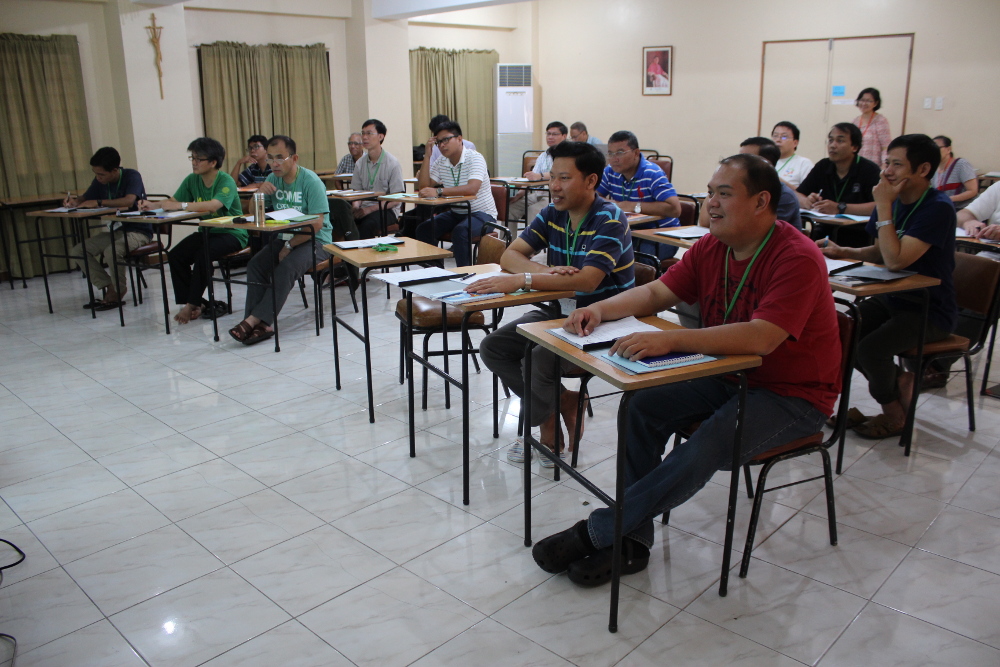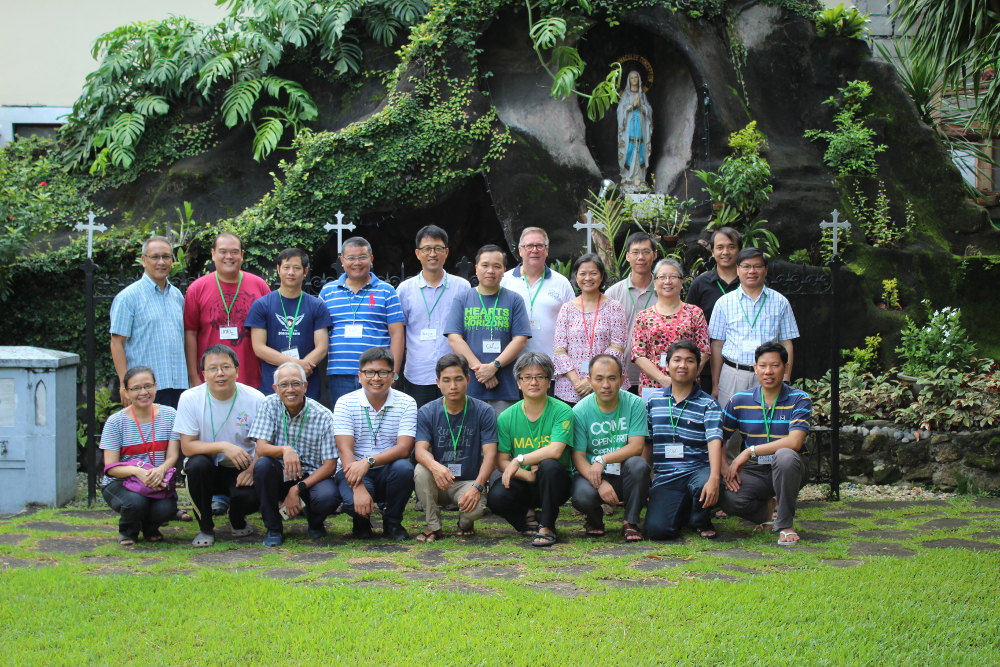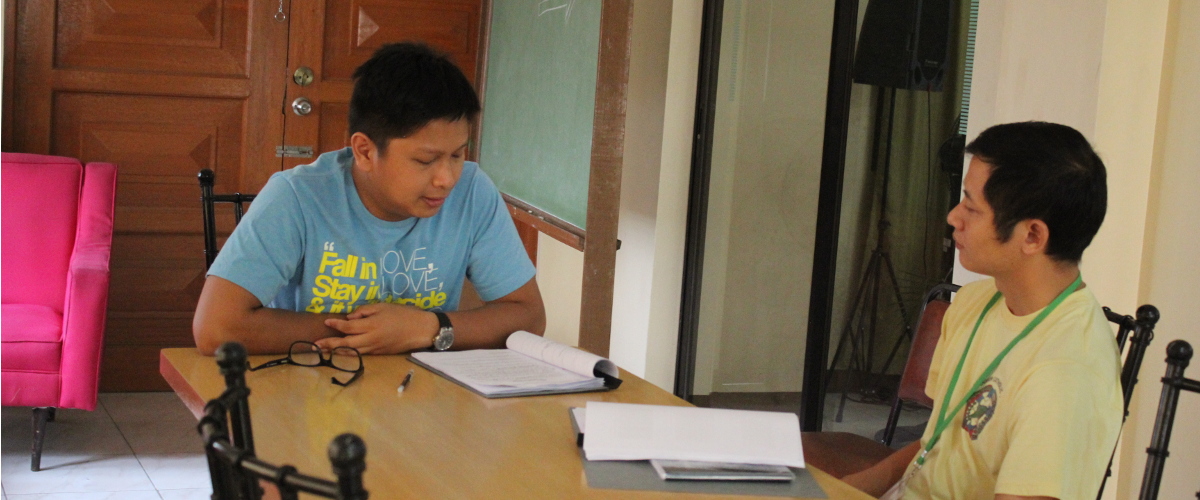Having good formators is vital in preparing young Jesuits to respond to the various challenges and needs of the world today. Hence the preparation of formators is a crucial aspect of the Jesuit mission, said JCAP Formation Delegate Fr Riyo Mursanto SJ, at the start of the Formation for Formators Workshop that underlined the pyscho-spiritual dimension of formation.
The two-week workshop began with a review of the role of the Jesuit formator led by Fr Roger Champoux SJ. He took them back to Society documents such as the Jesuit constitutions, complementary norms, General Congregation documents, and letters written by Superiors General. As Fr Champoux told the formators, their role as formators is primarily a spiritual task of helping to foster among the formands a personal and abiding relationship with Christ who is the foundation of the vocation and source of inspiration. “The formator is the mediator of the Spirit,” he said, paraphrasing from a Jesuit document.
 Fr Champoux stressed that the formator is tasked to transmit and facilitate the internalisation of the Jesuit apostolic mission, charism and way of proceeding, and manner of living the vows.
Fr Champoux stressed that the formator is tasked to transmit and facilitate the internalisation of the Jesuit apostolic mission, charism and way of proceeding, and manner of living the vows.
“When there is integration of human and spiritual qualities and acquired abilities, the Jesuit formator has moral authority and credibility, becomes a helpful instrument of God’s forming action, ensures the transmission of our way of proceeding, and is loved and respected by formands and trusted by fellow Jesuits as a bond of communion with other communities and works,” he expounded.
The 16 formators, who came from Australia, Myanmar, Vietnam, Indonesia, Korea, Philippines and Chinese Provinces, were then introduced to the concept of formative spirituality as a framework for formation programmes. This was done by Francisca Gloria Bustamante, Senior Associate at Emmaus Center for Psycho-Spiritual Formation, a Jesuit ministry established to address the formation needs of various religious congregations, seminaries, lay organisations and clergy in the Philippines.
 The centre’s co-founder Eva Galvey explained Emmaus Center’s Psycho-Spiritual Integration (PSI) programme, which has been used as a formation module by the Philippine Jesuit Province novitiate for more than 30 years. Galvey said that the PSI recognises the four dimensions of the self: pneuma (the breath of God), the human spirit (attracted to the true, good, and beautiful), psycho-emotional (area of feelings and thoughts) and the physical (body). “The goal is to integrate the four dimensions of the self,” she said.
The centre’s co-founder Eva Galvey explained Emmaus Center’s Psycho-Spiritual Integration (PSI) programme, which has been used as a formation module by the Philippine Jesuit Province novitiate for more than 30 years. Galvey said that the PSI recognises the four dimensions of the self: pneuma (the breath of God), the human spirit (attracted to the true, good, and beautiful), psycho-emotional (area of feelings and thoughts) and the physical (body). “The goal is to integrate the four dimensions of the self,” she said.
Other topics covered were problematic behaviours among formands including areas in sexuality and traumatic childhood experiences, the various forms of addiction and proposed methods of dealing with addictive behaviours led respectively by Dr Gabriel Dy-Liacco and Dr Trina Lising-Enriquez, Programme Associates and Therapists at Emmaus Center.
The workshop included a family tree exercise facilitated by Leilani Lopez of the Center for Family Ministries (CEFAM), a Jesuit institution dedicated to helping families by providing psychological support. She presented the Genogram, a graphic representation of a family tree that displays detailed data on relationships among individuals, family structures and emotional processes spanning three generations. Each formator then illustrated his own family tree that was processed briefly by trained professionals of CEFAM.
The JCAP Formation for Formators workshop, held from August 7 to 18 in Manila, was organised by Emmaus Center in consultation with Fr Mursanto.


